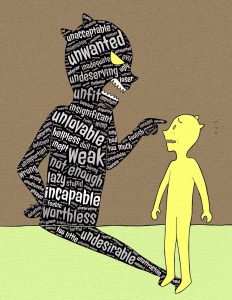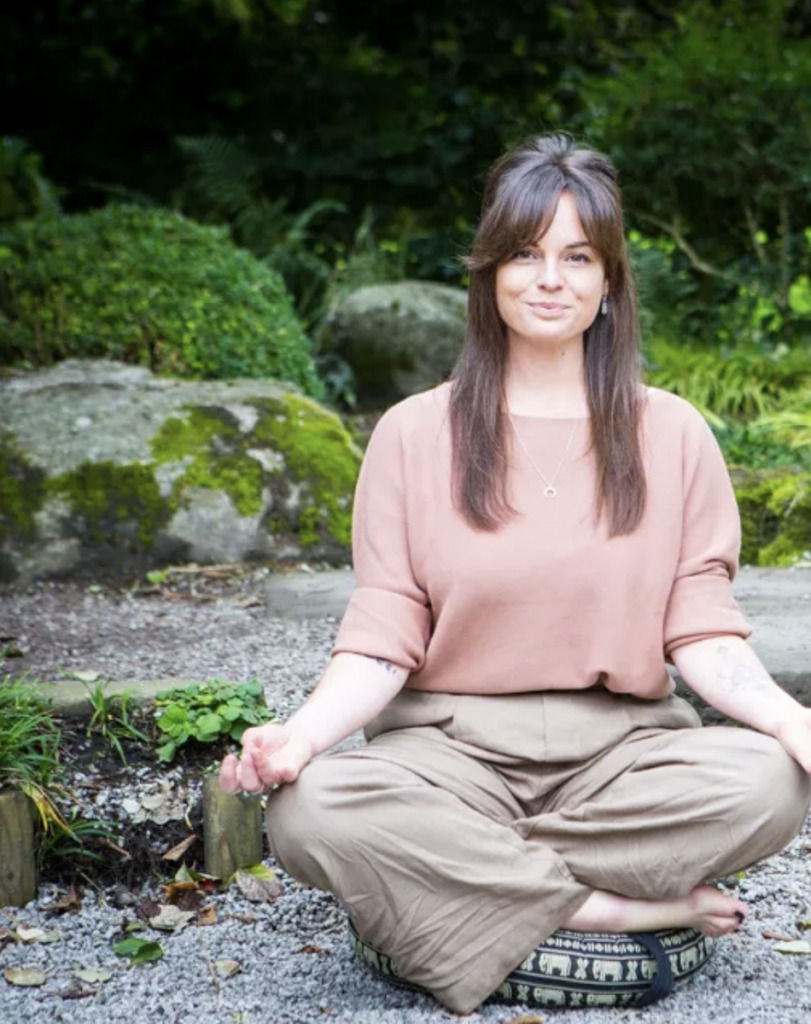In this guest blog, Catherine Banks, meditation teacher and holistic practitioner, explains how mindfulness and meditation helped her to cultivate self-compassion.
I used to give myself a hard time…

Before I started practising meditation and mindfulness, I loved to give myself a hard time. In fact, if I had people in my life who spoke to me the way that I spoke to me, I suspect we wouldn’t have been friends for very long.
My thoughts were filled with self-criticism and negative self-talk. Through the practice of meditation, I have learned to be kinder to myself. As we could all benefit from more positivity and self-love in our lives, I focus on this aspect quite often when teaching my students.
Become aware of your thoughts and feelings
The first step of learning self-kindness through meditation is becoming aware of thoughts and feelings. We have around 70,000 thoughts going around our head on average each day; the majority of these thoughts we are not even aware of.
We become so engrossed in the thoughts that they become foggy in our mind. We’re not even sure where they come from, but we can still feel the corresponding emotions of negative thoughts, such as stress, tension, dis-ease or anxiety.
Any form of meditation, and especially mindfulness, helps us to understand our relationship to our thoughts and emotions. We realise that they are transient, and that we don’t need to become engrossed in them. Moreover, the awareness that we can watch our thoughts separates us from the thoughts themselves, so we can then choose whether or not to listen to them.
Accept your thoughts and feelings without judgement
The second step is acceptance of these thoughts and feelings that arise, and not judging ourselves for having them. For me, this is the most important lesson in kindness learned through this practice.
Our inherent reaction when we have negative self-talk or emotions is usually to give them our attention by getting engrossed, causing them to spiral onto more and more of the same. Alternatively, we may try to push them away (which only causes them to bubble away under the surface) or we may beat ourselves up for being negative in the first place.
Through practice, the acceptance of those thoughts and emotions will allow them to gradually reduce, because you aren’t giving them the attention they crave. We can also practice being kind to ourselves each time we sit, by congratulating ourselves for noticing the thoughts and emotions which arise, accepting them and letting them go, instead of beating ourselves up for having them in the first place.
Bring kindness to your everyday life
The final step is bringing this kindness into our everyday lives. For me, the hardest part of starting meditation was learning to sit with awareness and acceptance of what arose, with no expectations of what this may be. However, this is also the most rewarding lesson learned from my practice. I learned to be more aware and accepting of myself, without imposing unrealistic expectations in my life or trying to guess what might come next. This was an important act of self-kindess and a huge factor in reducing my self-criticism. Ultimately, it led to the understanding that where we are in this moment is exactly where we need to be.
Catherine Banks
Further support and information…
- Find out more about Catherine’s meditation courses and holistic therapies here: https://www.catherinebanks.co.uk
- Click here to sign up to Pathlight’s e-newsletter for occasional updates on our services, resources to support mental health & wellbeing and more.
- Visit our website or email us for details of our services:
- Mental Health First Aid training
- Workplace wellbeing programmes
- Coaching for individuals, families and teams
- Webinars for individuals and organisations
For more information on this blog post, interviews or services provided by Pathlight Ltd, please email Paul: info@pathlight.org.uk

